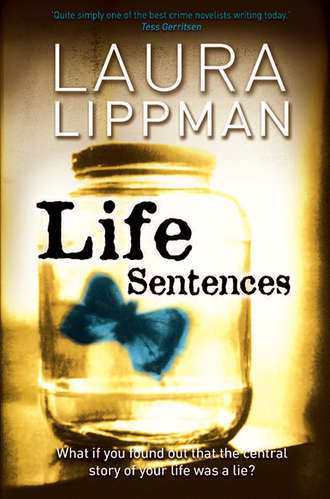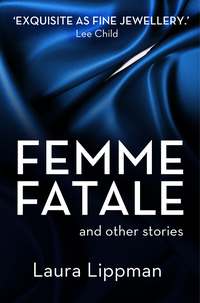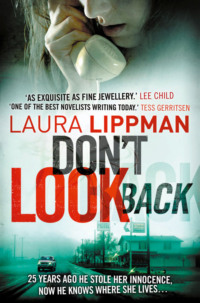
Полная версия
Life Sentences
‘Do you know what brent means, Cassandra?’ my father quizzed me, referring to another line in the poem: His bonny brow was brent.
I pretended great interest in the Wakefield Apartments, and the pretense quickly became authentic. Apartments were glamorous to me, in general, and although these did not conform to my penthouse fantasies, the terraced units had that kind of compactness that often appeals to small children. I wanted to make friends with people who lived in those apartments, see what was behind their doors and windows. It was a frequent impulse, one that would later lead to my dismal attempt to support myself as a freelance journalist for shelter magazines. Wherever I went—the sidewalks of the Wakefield Apartments, the long avenues of rowhouses that led to various downtown destinations—I wanted to know the interiors of people’s homes, their lives, their minds.
Because I was encouraged to tell my parents whatever passed through my quicksilver little brain, I told my father what I was thinking.
‘I hope there are kids who live in those apartments and they’re in my class and they become my friends and I get to go to their houses after school and play there.’ It was lonely on Hillhouse Road, where I was the only child in the five houses. There were teenagers, but they had no use for me. We had so little in common that they might as well have been bears or Martians or salamanders.
‘Your mother won’t like that,’ my father said.
‘Why?’
‘Because your mother’s a snob.’
I pondered that. A snob considered herself better than other people. This did not fit my sense of my mother, who seemed forever…sorry about things. She was always apologizing, mainly to my father. For dinner—its arrival time, its contents. For letting me sneak television shows like Peyton Place and, a few years hence, Love, American Style, which my father found so appalling that he couldn’t stop watching it. Television, which my father despised, would become a regular feature of my weekend visits with him, a reliable way of ‘entertaining’ me. On Friday nights, I would sit rapt in front of the television, tuned unerringly to ABC, where I progressed from fantasy to fantasy—the blended world of The Brady Bunch, the domestic magic of Nanny and the Professor, the harmonious life of The Partridge Family. That Girl (my personal idol), Love, American Style. It was fun, or would have been if not for my father’s running commentary. (‘So this is what farce has become…forget Sheridan, forget Wilde…bug-eyed virgins, bugger them all.’) By the time I was eleven, I knew about Sheridan and Mrs Malaprop, and Oscar Wilde, who said anyone could be good in the country, and even virgins, who were people who had yet to try to make babies. My father managed to avoid giving me bugger, however, and I was left to assume it was what happened to the bug-eyed. To be bug-eyed was to become a bug, and, therefore, buggered. I was twenty-one before I knew what it actually meant.
On the first day of third grade, bugger was not part of my vocabulary yet, although I had other odd words. Souse, for example, my father’s preferred term for drunks. Delaine, a fine fabric for which my mother pined as she decorated our house on the mingiest of budgets. Antidisestablishmentarianism, then reputed to be the longest word in the dictionary. I knew not only how to spell it, but—at my father’s insistence—what it meant, vaguely. And, yes, I did know brent, if only from context—smooth, handsome. Entering third grade, it was my plan to use these words, super-casually, and establish myself as an intellect with which to be reckoned.
My classroom assignment unearthed, I said good-bye to my father, trying not to display any panic, and walked upstairs to Mrs Klein’s room. Mrs Klein was young and pretty, the two best things a teacher could be. The class filled up quickly and I looked around, trying to decide who would be my best friend. I recognized a shy blond girl, someone I had seen around the neighborhood, but dismissed her. She had a strange look about the eyes, which were underscored with dark circles. I drifted toward the group that seemed the most confident, three girls in all. The desks had been arranged in configurations of four and they had seized a desirable quartet, alongside the windows, in the middle.
‘May I sit here?’ I asked the smallest of the three girls.
She cast a quick glance at the other two. One was tall and a little pudgy, but I could see in an instant that no one would ever dare tease her about her weight. The other was pretty but too shy to make eye contact. All three were Negroes, the word I would have used then, and felt quite proud of using. The class was equally split between white and black children, a change from Thomas Jefferson, where there had been only two African-American girls. I did not choose the group for this fact, nor was I especially conscious of it at the time. Later, my parents would make me conscious, even self-conscious. My father would praise my friends far too much, and my mother would practically congratulate herself on how nice she found their mothers, how polite. Except Fatima’s.
My father was particularly fond of Donna, whom he called doe-eyed Donna—always in those words, doe-eyed Donna—but he liked Tisha and Fatima, too. They would not be my only friends at Dickey Hill. I would, over time, find girls who lived in the Wakefield Apartments, go to their homes, and find it almost as interesting as I had hoped, the rooms so small and cunning, like something a mouse might build. But during the school day, this was my group. We were the smart girls, the leaders, each with a clearly defined role. I got good grades. (As did the others, but I got the best grades.) Donna was the artist. Fatima was the adventurer, destined to do everything first. And Tisha was the boss, looking out for all of us. We thought we were the future.
Chapter Eight
‘Good morning, darling.’
Cassandra slept heavily and those who truly knew her well—her parents, two ex-husbands—understood that she was capable of answering the phone while still asleep and even managing several seemingly coherent sentences. She was particularly disoriented this morning, confused about her whereabouts—Baltimore, right, the leased apartment—confused about who might be calling her. She had been dreaming, and it had been pleasant, but that was all she could remember.
‘Bernard,’ she murmured after exchanging a few sleep-fogged sentences. Then: ‘What day is it?’
He laughed, as if she were being droll, but it was a legitimate question. More than a decade into her life as a full-time writer, Cassandra had yet to become accustomed to how self-employment dulled the days, blurring all distinctions. Monday, Monday? She not only trusted that day, she rather liked it. As the workweek progressed, she could observe but not really share the rising tide of high spirits she saw in the people around her, at cafés and coffee shops. She especially missed the giddy high of Friday afternoons, the luxurious emptiness of Saturdays, but not so much that she would want to experience the lows of the working week. It was a bit like being on medication, she supposed, each day more or less the same as the one before.
Not that she had ever been on medication. Her father’s daughter, indeed. Ric Fallows bragged about how he never took so much as an aspirin or an antihistamine, and while Cassandra knew her father’s stance was a kind of bigotry, born of serendipitous good health, she couldn’t help absorbing his views. It amused her, a little, when he had to start taking a cholesterol drug.
There was a period, just before her first marriage broke up, when she was given a prescription, but she never filled it, although she lied and told the doctor she did. He had gotten in touch with her after she revealed that detail in her second memoir, outraged. Outraged! By telling the world—well, about 800,000 readers, give or take—that she had ignored her psychiatrist’s advice, he argued, she had branded him incompetent, unworthy. And never mind that she hadn’t named him, his e-mail continued, anticipating her defense.
‘As I will remind you,’ his e-mail huffed, ‘libel law requires only that a person be identifiable to some, not all. Your ex-husband, for example, would know that this passage refers to me, so it’s inferences may, in fact, be libelous.’
She had written back, ‘It’s hard for my ex-husband to have a lower opinion of you than the one he has long harbored, given some of the “advice” you provided at the time. In the end, I am happy with how things worked out, so I don’t really care that you were unethical and boneheaded and not a particularly good listener. But if you’re worried about your professional rep, be advised that the possessive “its” takes no apostrophe and that only the listener may infer, so the word you want is “implications”, not inferences. Cheers, your former patient, now quite sane, no thanks to you.’
She wouldn’t write such an e-mail today, fearful that it would be posted on the Internet. But it felt good at the time. She had been wise, rejecting whatever drug the doctor had been pushing on her. Not feeling wasn’t the secret to happiness.
Neither was Bernard.
‘It’s Saturday,’ Bernard said, ‘and Tilda decided to go up to Connecticut to visit her sister for the weekend. Can I come over?’
‘You could, if I were in Brooklyn,’ she said. ‘But I’m in Baltimore, working on the new project. I told you.’ She was awake now, hearing everything, even the things that weren’t actually said.
‘I thought you might come back, on weekends.’
‘Some weekends. Although it never occurred to me that you would be free on a Saturday.’
‘Me either,’ he said. ‘But you were the first person I thought of.’
‘You’re sweet,’ she said, stifling a yawn. Bernard was sweet. And considerate—not only of her but of his wife. Granted, he was cheating on his wife, but he was conducting the affair in the kindest, most thoughtful way possible. Cassandra had been able to rationalize the relationship because it was truly about sex—sex and a little companionship. She had no interest in marrying again and the men she dated eventually found this intolerable. Bernard, who really did love his wife, had seemed the perfect solution, because he could be scheduled, usually weeks in advance.
But he had become clingy of late, demanding. He wasn’t in love with Cassandra, but he couldn’t bear the fact that she wasn’t in love with him. They were on their last legs. She hoped the end wouldn’t be ugly. In fact, she had calculated that he would fall out of the habit of her while she was in Baltimore, smoothing the way for a painless breakup.
‘Maybe I could come down there,’ he said. ‘On a weekend, it’s an easy drive.’
‘I’m working,’ she lied reflexively.
‘On a Saturday?’
‘I’ve scheduled some interviews.’
‘How are things going?’
‘Okay,’ she said, hoping that was the truth. She really couldn’t tell. But Bernard, whom she had met at a lecture a year ago, needed to believe she was never in doubt when it came to her work. He had read the novel, while it was still in manuscript, and pronounced it brilliant. Bernard worked on Wall Street, and his prognostications on money were much more sound than his opinions on literature. If only he had brought the same conservative, the-bubble-must-burst mentality to her last book. All commodities crash, Bernard had told her recently, speaking of oil, but Cassandra couldn’t help wondering if it applied to her, too.
‘I miss you,’ he said in a tone that suggested he was trying to cram much meaning into those three words. At least it wasn’t ‘I love you.’ That would be disastrous.
‘I miss you, too,’ she assured him. In some ways, she did. She would be happy to have him in bed with her right now. He was a thoughtful lover and excited by the fact of the affair, which he claimed was his first. Cassandra didn’t quite believe him, but she understood that he had convinced himself of this fact. Her hunch was that Bernard was a serial monogamist on parallel tracks—he was faithful to Tilda, he was faithful to his lovers. Sort of like a subway line with an express track and a local track. On the local, he trod through life with Tilda, a sweet-faced blonde who sometimes got her picture in the Sunday Styles section of the Times, an old-fashioned New York wife with a conscience and lots of dutiful charity work. Then, on the express, he sped through affairs with women with whom he could never form a bond. Cassandra was his first creative type, and he probably would have tired of her by now if she had the good sense to pretend to be in love with him. She simply didn’t have the energy.
‘I—’ he began, and she rushed to interrupt, to block the verb she could not afford to hear.
‘I’ll come back week after next, on Monday or Tuesday, to meet with my editor. You can usually get free in the evenings, right?’
‘With notice, yes.’
‘I’ll give you plenty of notice.’ And cancel at the last minute. Which, in the short run, would not achieve anything. If she continued to be this aloof, he might decide to leave Tilda. ‘Good-bye, my love,’ she added, hoping the use of the word as a noun would be sufficient.
Only now she was awake, on what looked to be a bright if chilly March day. It really was strange how much the weather affected mood. Gray sky or blue, her circumstances were the same day to day. Was she happy? She knew she should be. She had money and health and even health care. She lived as she wanted. She didn’t have children or a husband, but those things were overrated. She had Bernard, although he represented a regression. Her second book had ended with the claim that she had moved beyond meaningless affairs, that she was content on her own.
Конец ознакомительного фрагмента.
Текст предоставлен ООО «ЛитРес».
Прочитайте эту книгу целиком, купив полную легальную версию на ЛитРес.
Безопасно оплатить книгу можно банковской картой Visa, MasterCard, Maestro, со счета мобильного телефона, с платежного терминала, в салоне МТС или Связной, через PayPal, WebMoney, Яндекс.Деньги, QIWI Кошелек, бонусными картами или другим удобным Вам способом.






